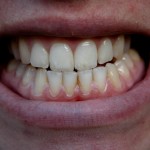
Gingival recession (GR) leads to the exposure of the tooth root owing to displacement of the gingival margin apical to the cemento-enamel junction While and range of techniques are available to treat GR as while they do not improve they may not progress to tooth loss although aesthetics may be impaired along with increased sensitivity.
The main aim of this review was to assess the long-term outcomes of untreated buccal gingival recession (GR) defects and the associated reported aesthetic and functional alterations.
Methods
Searches were conducted in the Medline, Embase and OpenGrey databases supplemented by hand searches of the journals; Journal of Periodontology, Journal of Clinical Periodontology, Journal of Periodontal Research, and Journal of Dental Research. Randomized controlled trials (RCTs), controlled clinical trials (CCTs), and observational studies of ³24 months duration, with ³10 participants, were considered
Two reviewers independently screened and selected the studies, abstracted data and assessed study quality. The Cochrane risk of bias tool was used for RCTs and CCTs and the Newcastle-Ottawa scale for observational studies.
Results
- 6 studies reported in 8 papers were included.
- Studies were conducted in Italy, the Netherlands, Spain, Sweden and the USA.
- The average follow up period was 8.9years (range 5-27 years).
- None of the studies were considered to be of high quality or low risk of bias.
- 1,753 buccal GR defects were assessed within the included studies
- 78.1% experienced GR depth increase during the follow-up period, the remaining experienced decrease or no change.
- Moreover, there was a 79.3% increase in the number of GR defects among the patients followed (i.e., new GR defects).
- Pooled estimates (4 studies) showed significantly increased odds of recession development long term, regarding
- number of patients, odds ratio, (OR) = 2.43 (95%CI;1.09 to 5.42)
- number of sites with GR, OR = 2.16 (95%CI; 1.40 to 3.33).
Conclusions
The authors concluded
Based on both the individual study outcomes and the pooled estimates, it can be concluded that untreated buccal GR defects in individuals with good oral hygiene are highly likely to experience recession depth increase during long-term follow-up. Limited evidence suggests that presence of keratinised tissue (KT) and/or greater KT width decrease the likelihood of RD increase or new GR development. Limited evidence also suggests that existing or progressing GR does not lead to tooth loss.
Comments
This review has included searches of two major databases a grey literature resource and several periodontal journals identifying only a small number of studies addressing the question posed. A small number of limited quality observational studies were identified which suggest that GR defects progress in individuals with good oral hygiene.
Links
Primary paper
Chambrone L, Tatakis DN. Long-Term Outcomes of Untreated Buccal Gingival Recessions: A Systematic Review and Meta-Analysis. J Periodontol. 2016Jul;87(7):796-808. doi: 10.1902/jop.2016.150625. PubMed PMID: 26878749.
Other references
Original review protocol on PROSPERO
Dental Elf – 2nd Jul 2015
Dental Elf – 26th May 2015
Toothbrushing: little data on association with gingival recession

[…] post Gingival recession: long term outcomes of no treatment appeared first on National Elf […]